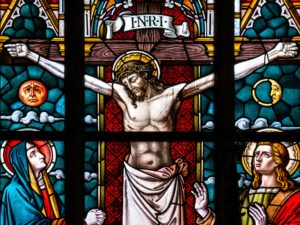
Baltimore, MD – Frank T. Cimino Jr., the founder and director of the Maryland State Boychoir, has resigned following his identification as one of the 156 Catholic Church staff named in a Maryland Attorney General’s Office report on child sex abuse in the Archdiocese of Baltimore.
Past Sexual Abuse Allegations and Resignation
Cimino, 75, founded the Maryland State Boychoir 36 years ago and served as its president and director emeritus. The allegations against him date back to the 1970s when he was fired from his job as minister of music at St. Thomas More Catholic Church in Northeast Baltimore after a man reported being sexually abused by him as a choirboy.
Despite denying the allegations when confronted by Archdiocese officials, the man reported the abuse again in 2020.
Cimino’s Resignation Following Inclusion in Catholic Church Sex Abuse Report
The choir’s board of directors expressed shock at the allegations, stating that there had been no previous complaints about Cimino’s conduct. They appointed Stephen Holmes, the artistic director, to take over as acting president.
The board emphasized its commitment to monitoring and evaluating the situation to ensure the safety of its members and community.
Founder of Maryland State Boychoir Listed as Accused Sex Abuser
Cimino’s legacy with the boychoir began humbly with just 14 boys practicing in his mother’s basement. Over the years, it grew to around 130 members, performing nationally and internationally.
The choir’s achievements include recording CDs, performing at prestigious venues like the White House and the Vatican, and being named an official goodwill ambassador of Maryland by late Gov. William Donald Schaefer.
Frank Cimino was identified as No. 147 on the attorney general’s “List of Abusers” in its report. The report, issued by the Maryland Attorney General’s Office, focuses on child sex abuse within the Archdiocese of Baltimore and includes 156 Catholic Church staff members.
Choir Board’s Response to Sexual Abuse Allegations
Despite these troubling developments, the Maryland State Boychoir remains dedicated to its mission and ensuring the safety of its choristers. The organization pledged to keep its community updated on any further developments regarding this matter. This resignation marks a significant moment for the Maryland State Boychoir and raises important questions about child protection within religious institutions.
Overcoming Legal Hurdles – A Conversation with Maryland-Based Clergy Abuse Lawyer
Attorney Laurence Banville recently sat down with Aaron Blank, a Maryland-based clergy abuse lawyer, to discuss the options available to victims of clergy abuse who are considering pursuing a civil case against those responsible. Discover the practical guidance and support that can help survivors seek compensation and hold accountable the parties liable for their suffering.
Laurence Banville, Esq. (LB): Thank you for joining me today, Aaron. Let’s begin by discussing the civil cases that victims of clergy abuse can pursue. What legal avenues are available for these individuals?
Aaron Blank, Esq. (AB): Certainly, Laurence. Victims of clergy abuse have the option to file civil lawsuits against the liable parties involved. In Maryland, as in many other states, there are statutes of limitations that dictate the timeframe within which these cases can be filed. However, recent changes in legislation have extended the statute of limitations, allowing more survivors to come forward and seek justice.
LB: That’s an important development for survivors. Could you elaborate on the process of filing a civil case for clergy abuse victims?
AB: Of course. When a survivor decides to pursue a civil case, they typically engage an attorney with experience in clergy abuse cases. The attorney will gather evidence, including any documentation or witness testimonies that support the survivor’s claims. Once the case is prepared, it is filed in civil court, and the legal proceedings begin.
LB: How do these civil cases differ from criminal cases?
AB: Unlike criminal cases, where the accused can face imprisonment if found guilty, civil cases focus on seeking monetary compensation for the survivor’s damages. This compensation can cover medical expenses, therapy costs, lost wages, and other related damages. Additionally, civil cases provide an opportunity for survivors to hold the responsible parties accountable for their actions.
LB: Are there any challenges that survivors may encounter when pursuing civil cases?
AB: Absolutely. One of the primary challenges is the emotional toll that comes with reliving the trauma during the legal process. It is essential for survivors to have a support system in place, including mental health professionals who specialize in trauma. Additionally, navigating the legal system can be complex, which is why it is crucial for survivors to work with experienced clergy abuse attorneys who can guide them through the process.
LB: What advice would you give to survivors who are considering filing a civil case?
AB: My advice would be to reach out to an attorney who specifically handles clergy abuse cases. These attorneys have the expertise and understanding necessary to support survivors through their legal journey. It’s also important for survivors to know that they are not alone and that there is support available to them. By coming forward, survivors can not only seek justice for themselves but also contribute to the prevention of future abuse.
LB: Thank you, Aaron, for sharing your insights on this important topic. Your expertise is invaluable for survivors who are seeking justice.
AB: It was my pleasure, Laurence. I hope that our conversation sheds light on the options available to survivors of clergy abuse. It is crucial that we continue to raise awareness about this issue and support those who have been affected.
Free Consultation for Victims of Clergy Abuse: Contact Us for Support and Guidance
If you or a loved one has been a victim of clergy abuse, we understand the challenges you may be facing. Our team is here to provide you with compassionate support, legal guidance, and a commitment to seeking justice on your behalf. Don’t hesitate to reach out to us for a free consultation, where we can discuss your case, address your concerns, and explore the options available to you. Remember, you are not alone in this journey, and together, we can work towards healing and holding those responsible accountable. Contact us today to take the first step towards reclaiming your rights and finding the justice you deserve.

Mr. Banville is a personal injury attorney who has experience in handling auto accidents, work injuries, medical malpractice, dog bites, slip and falls, and representing survivors and victims of sexual abuse. Mr. Banville is affiliated with law firms in Pennsylvania, New York, New Jersey, Delaware, D.C., and Maryland. Abuse Guardian










Comments for this article are closed.